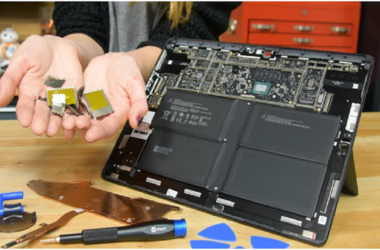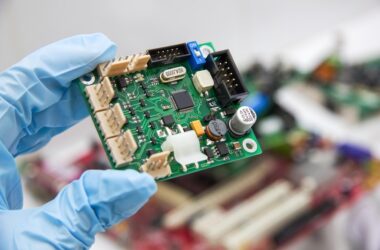Imagine being able to control prosthetic limbs or communicate with others using only your thoughts! Mind machine interface technology holds great promise to transform medicine in unimaginable ways – from helping those living with disabilities live happier lives to enhancing surgical precision, the possibilities are limitless! In this article, we’ll examine its potential in medical applications.
What is Mind Machine Interface Technology
Mind machine interface Technology allows individuals to interact with computers or machines using only their thoughts. This is by measuring electrical activity in the brain, which is then translated into commands for controlling external devices. Mind machine interface technology has existed for several decades, but recent advancements in neuroscience and computing have made it more accessible and refined. Wearable and implantable devices also allow this technology to be utilized in real-world situations.
1. Assistive Technology for Disabilities
One of the most promising uses for mind machine interface technology is providing assistive devices for those with disabilities, including paralysis and loss of limbs. For example, these individuals could use this technology to control prosthetic devices that improve their independence and quality of life. Research has demonstrated the effectiveness of this technology for people with communication disabilities. For instance, people living with locked-in syndrome – wherein they cannot move or speak but remain fully conscious – may use it to communicate with others, potentially improving their quality of life and decreasing social isolation.
2. Improved Precision in Surgery
One potential application of mind machine interface technology is in surgical procedures, where it can help improve instrument precision and decrease human error risk. This can be particularly helpful during delicate processes like brain surgery where even minor errors could have serious repercussions. Research has already demonstrated the efficacy of this technology for controlling robotic surgical instruments with extreme accuracy, potentially decreasing the need for large teams and making procedures less invasive.
3. Treatment of Mental Health Disorders
Mind machine interface technology holds great potential to revolutionize the treatment of mental health disorders. For example, it can assist individuals suffering from depression or anxiety by providing real-time feedback on their brain activity – providing real-time feedback can help individuals learn to control their emotions and alleviate symptoms more efficiently. This technology can also help treat post-traumatic stress disorder (PTSD). Studies have demonstrated how it can retrain the brain to respond differently when faced with triggers that cause anxiety or stress, potentially improving the lives of people with PTSD and decreasing medication usage.
Challenges and Limitations
While mind machine interface technology holds great promise, it still presents many obstacles and restrictions. Chief among them are accuracy and reliability issues; errors can still occur from factors like fatigue, stress, and medication side effects. Another limitation is its cost and accessibility. These devices can be costly and not covered by insurance plans, making it hard for those who could benefit from their use to access them.
Conclusion
Mind machine interface technology’s potential in healthcare applications is immense and exciting, holding great promise to transform healthcare delivery while improving the lives of many patients. But there are challenges and limitations associated with this technology that must be addressed before it can become widely accessible. Continued research and collaboration among stakeholders are required to ensure it is developed and used responsibly and ethically. To learn more about the latest developments in mind machine interface technology and other cutting-edge technologies in healthcare, read more from Interchange Lab.






